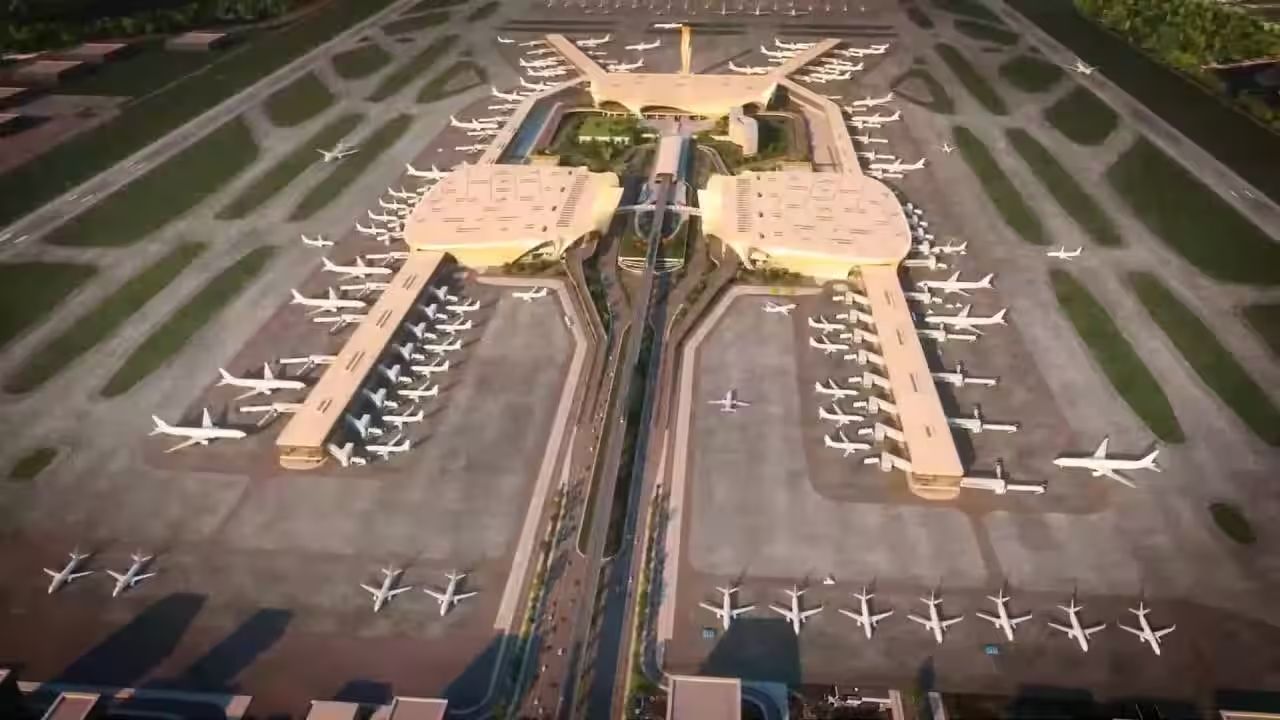Navi Mumbai International Airport Paves Way for Modern, Digitally-Driven Aviation

Prime Minister Narendra Modi is set to inaugurate the Navi Mumbai International Airport today, marking a significant milestone in India’s aviation sector. Touted as the country’s first fully digital airport, the facility is scheduled to begin commercial operations in December 2025. The new airport is expected to enhance passenger travel, transform cargo operations, and position Navi Mumbai as a key hub in India’s rapidly growing aviation network.
Mumbai Joins Global Cities With Multiple Airports
With the addition of Navi Mumbai International Airport, Mumbai joins an exclusive group of global cities, including London, New York, and Tokyo, that operate multiple airports. This development is expected to relieve congestion at the city’s existing Chhatrapati Shivaji Maharaj International Airport while expanding capacity for both domestic and international flights. Experts believe the airport will strengthen Mumbai’s global connectivity and stimulate economic growth in the surrounding region.
A Fully Digital, State-of-the-Art Facility
The airport has been designed as a fully digital facility, incorporating advanced technology to streamline operations and enhance passenger experience. Travelers can expect faster check-ins, automated baggage handling, and seamless boarding processes. Digital systems will also improve air traffic management and operational efficiency, setting a benchmark for future airports in India. Officials describe the airport as a model for modernization in India’s aviation infrastructure.
Cargo Hub and Economic Opportunities
Beyond passenger services, the airport is expected to emerge as a central hub for cargo operations in India. Strategically located, Navi Mumbai International Airport will facilitate faster movement of goods across the country and internationally. The development is anticipated to create new business opportunities and generate employment across logistics, aviation, retail, and allied sectors, contributing to the broader economic development of the region.
Advanced Infrastructure and Sustainability
Infrastructure specialists highlight that the airport is equipped with advanced runways, modern terminals, and a host of digital systems designed to support high volumes of passenger and cargo traffic. The facility also emphasizes sustainability, with energy-efficient designs and environmental management measures integrated into construction. Planners have focused on creating a modern, passenger-friendly environment while ensuring operational efficiency at scale.
Boosting India’s Global Aviation Ambitions
India’s aviation sector has grown rapidly in recent years, fueled by rising disposable incomes, increased tourism, and expanding international trade. The launch of Navi Mumbai International Airport reflects the country’s ambition to become a global aviation hub and supports the government’s broader vision of economic modernization and enhanced connectivity. Analysts suggest that the airport could serve as a template for other Indian cities planning large-scale, digitally integrated airports.
Read Latest News and Breaking News at The Newsman, Browse for more Business News



